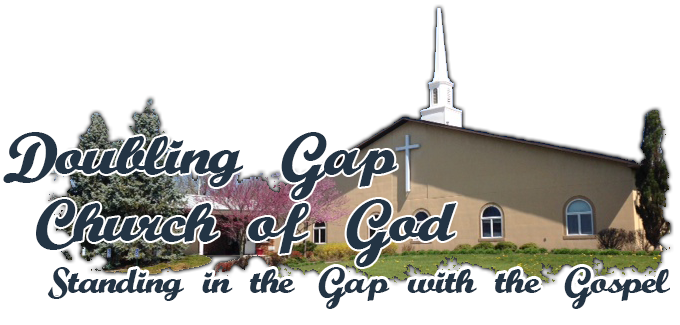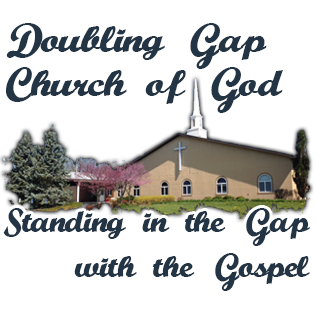The Churches of God, General Conference began in 1825 as a result of the labors, revivals, and ideas of John Winebrenner, a German Reformed pastor who ministered in and around Harrisburg, Pennsylvania.
During the late 1820s, Winebrenner came to new theological conclusions about the nature and government of the Church, the importance of the regenerating experience of the new birth, and the ordinances (Believer’s Baptism by immersion, Lord’s Supper, and Feet Washing). He reaffirmed the belief that the Bible was the “only authoritative rule of faith and practice.”
In 1830 he joined five other “teaching elders,” or ministers, in central Pennsylvania in forming an “eldership” for the purpose of adopting a system of cooperation.
As Churches of God settlers moved west, they established new churches and elderships in Western Pennsylvania, Ohio, Indiana, Illinois, Iowa, and Michigan. By 1900 the denomination had spread to Texas, Arkansas, Missouri, Kansas, Nebraska, and Oklahoma. Separate elderships had also been formed for churches in Maryland and West Virginia. The California Eldership began in 1948. Congregations from the Church of God chartered in Mississippi became the Mid-South Conference in 1983.
Churches of God once existing in Maine, Washington, Oregon, Colorado, and other states have ceased to function.
A General Eldership was formed in 1845 to provide for cooperation between local elderships. Since the 1960s, the trend has been to call judicatories “conferences” rather than “elderships” in recognition that representation is no longer limited to “elders.”
Churches of God periodicals, The Gospel Publisher (1835-1845) and The Church Advocate (1846-present), have played a key role in distributing information about and for the Churches of God and have provided forum for the discussion of important issues. Two other publications have had a long and distinguished history. The Gem, a Sunday school paper, began in 1867. The Workman was first published as a monthly lesson booklet in 1879 and became a quarterly in 1890. The denomination maintained its own printing establishment, Central Publishing House, in Harrisburg from 1901 to 1979.
Foreign mission work was established at Ulubaria, India, in 1898 and at Bogra (now Bangladesh) in 1905. Members of Slovak descent started mission churches in Eastern Europe in 1922, but communist governments have thwarted this effort. Project HELP was begun in Haiti in 1967 and a ministry to Navajos began in New Mexico in 1976.
Findlay College was incorporated in 1882 and opened for classes as a Churches of God college in 1886. Winebrenner Seminary began as a graduate department of theology in 1942 and was chartered as a separate institution in 1960. Barkeyville Academy (1881-1906) in Pennsylvania and Fort Scott Collegiate Institute (1902-1917) in Kansas are other educational institutions once supported by the denomination.
Church camping had its start in 1931 with the first of three annual General Eldership camps. Within a few years several local elderships began to hold their own summer camping programs. Today most local elderships or conferences have camping programs. Many of them own and operate their own facilities, some on a year-round basis.
Three lay organizations have played an important part in the recent history of the denomination. The Churches of God Youth Advance (CGYA) was formed in 1947, the Women’s Christian Service (WCSC) in 1953 and the Churches of God Winebrenner Brotherhood (CGWB) in 1967.
Facilities for the aging are operated in two locations. The East Pennsylvania Conference operates the Church of God Home in Carlisle, Pennsylvania (founded 1948). The West Pennsylvania Conference operates Grove Manor in Grove City, Pennsylvania (founded 1971).
The name of the denomination has changed several times. It was first known as the Church of God, in keeping with Winebrenner’s view that “there is but one true Church, namely: the Church of God.” The phrase in North America was added by the first General Eldership in 1845. In 1896 the name was made plural and became Churches of God in North America. In 1974 two changes were made. The phrase “in North America” was eliminated in recognition of the Churches of God members in India, Bangladesh, and Haiti. “General Eldership” was changed to “General Conference” in recognition that delegates were no longer limited to “elders.” Thus, the correct name of the denomination today is Churches of God, General Conference.
The Churches of God, General Conference is a Pennsylvania corporation organized and existing under the act of April 18, 1867, P.L. 1295 and subsequent charter amendments.
The Administrative Office and operational headquarters of the Churches of God, General Conference is located at 700 East Melrose Avenue in Findlay, Ohio, in the Center for Christian Ministries, constructed by the Churches of God in 1981.
Statement of Faith
We believe in God, that He is three persons but one God and both hidden and revealed. It is His holiness that provides for humanity’s deliverance from the penalty and power of sin. His work is primarily creation, grace, justice, and mercy. God wants us to know Him and has revealed Himself to us in various ways.
We believe in Jesus Christ and in His pre-existence. He became incarnate and was truly human and wholly God. The characteristics of Jesus’ divinity are the very characteristics of God. He is Savior and Lord. He died and was resurrected and ascended into heaven. This same Jesus will come to receive us that we may be with Him forever.
We believe in the Holy Spirit, that He is God and came into the world in a new way at Pentecost. He can be known and experienced. He endows the followers of Christ with the “unity of the Spirit.” His function in the Church, through the work of sanctification, is producing spiritual fruit and dispensing spiritual gifts.
We believe the Bible is the inspired, infallible authority, the Word of God, our only rule of faith and practice. God uses the words of men to convey His truth. The central message of the Scriptures is the good news that Jesus Christ is the Son of God. Proper interpretation of the Bible comes from the Holy Spirit.
We believe in humanity’s importance to God and in our created nature. Humanity has a sinful nature. We also have the potential of a new nature in Christ. We are created free moral agents and are accountable to God for choices made. We are free to make the decision to accept Christ. We are no less free to turn away from God and be lost. God does provide power for living a victorious Christian life.
We believe humanity’s salvation is in our regeneration, new birth, when we respond to God’s offer. Humanity is justified by faith in Christ, not by works of the law, or by works of our own righteousness. Justification includes remission and restoration, bestowed righteousness of God, and new standing before God. Sanctification is both instantaneous and progressive. The believer’s life and character are transformed by consecration to God. It is the privilege and duty of believers to live holy lives.
We believe the Church is God’s called-out people who have specific rights and responsibilities. The Church enjoys a special kind of fellowship which is rooted in the Christian’s common fellowship with the Father. The Church should be a servant to God and humanity and apply New Testament principles to its life.
We believe Christ has given the Church three divine ordinances: Baptism, Feet Washing, and the Lord’s Supper.
Baptism is an outward symbol of an inward grace. It is to be practiced by those who profess faith in Christ and express commitment to follow Him. Baptism is not essential to salvation. It is to be administered by immersion.
Feet Washing is a celebration of the Incarnation and reminds us of our calling to be servants. It is an expression of our love for one another. It reminds us of our need to minister and to be ministered unto.
The Lord’s Supper, also known as Communion, is intended to remind us of Christ’s atoning death. It is a proclamation of hope. This ordinance is open to all Christians.
We believe in the presentation of children for the Lord’s blessing, setting them apart for the Lord. Children are gifts of God and part of the covenant community. Parents are responsible for the spiritual nurture of their children. The congregation also shares this responsibility.
We believe in the Second Coming and ultimate victory of Jesus Christ. God will bring history to its proper close in His way and time. The message of end times is one of victory and fulfillment for Christians and the ultimate triumph of God’s Kingdom. Until then the mission of God’s people is to be salt and light in the world.
We believe in the bodily resurrection of believers. We believe judgment will accompany Christ’s return.
(This section is a summary of We Believe, the doctrinal statement of the Churches of God, General Conference.)

